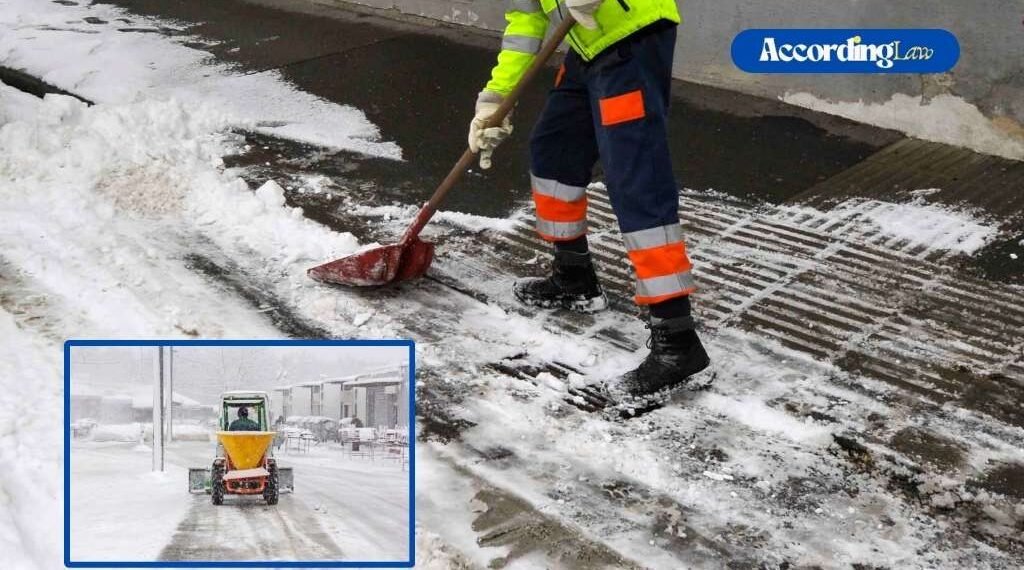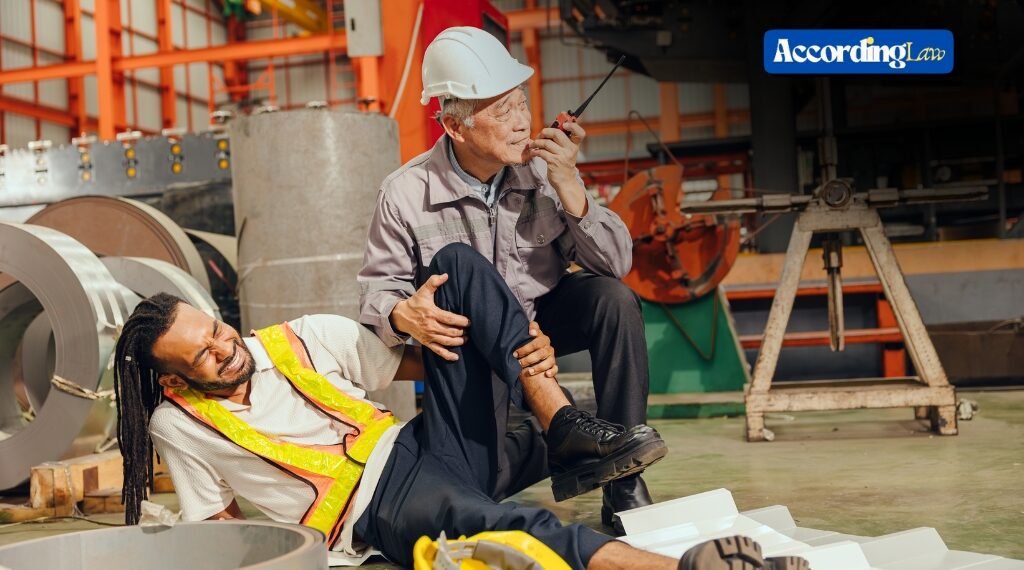The end of summer is here, and do you know what that means? Not to quote a massive HBO series but: Winter is coming. Between nor’easters, black ice, and relentless snowstorms, keeping the city’s sidewalks, streets, and public spaces clear is a massive undertaking. And who shoulders that responsibility? Snow removal workers. These crews work long hours, often in dangerous conditions, to make sure the rest of us can get to work, school, or even just the corner store safely.
But here’s the thing: when you’re battling freezing winds at 3 a.m. with a shovel in one hand and salt bags in the other, accidents are bound to happen. One of the most common injuries among snow removal workers is slipping and falling on the very ice they’re trying to clear. It’s a bit ironic, sure, but it’s also a serious problem. So, what happens when a snow removal worker slips on the job? Let’s break it down.
Why Slips and Falls Are So Common
First off, it’s worth remembering that snow removal isn’t your average nine-to-five gig. Workers are often called out during storms, when conditions are at their worst. They’re walking over ice-coated sidewalks, climbing in and out of heavy plows, and carrying equipment in freezing rain. Add in exhaustion from back-to-back shifts and the pressure to get the job done quickly, and you have a recipe for accidents.
Common hazards include:
Put all of these factors together, and it’s no wonder slips are so frequent.
The Types of Injuries Workers Face
A slip might sound like a minor issue, but falls can cause injuries that linger for weeks, months, or even a lifetime. Some of the most common injuries for snow removal workers include:
Even a “simple” injury like a sprained ankle can sideline a worker for weeks, meaning lost wages on top of medical bills.
Table of Contents
What Happens Right After the Fall
Let’s say a snow removal worker slips during a shift. Here’s what should happen immediately:
These steps can make all the difference when it comes to protecting a worker’s rights.
Workers’ Compensation Basics
So, what happens financially and legally after a slip? That’s where workers’ compensation comes in. In Massachusetts, employers are required to carry workers’ comp insurance for their employees. This coverage helps with:
The goal is to make sure injured workers don’t have to shoulder the financial burden of an accident that happened on the job.
But here’s the catch: workers’ comp claims aren’t always straightforward. Employers or insurance companies may dispute how the injury happened, argue that it didn’t occur on the job, or even suggest the worker wasn’t following proper safety protocols. This is where things can get messy.
Navigating the Claims Maze
When disputes arise, having legal guidance can make all the difference. For example, a Boston workers comp lawyer can help injured snow removal workers navigate the claims process, appeal denials, and fight for the benefits they deserve. The rules around workers’ compensation can vary from state to state, so having someone local who understands Massachusetts law is key.
It’s also worth noting that while Boston has its own challenges, workers across the country face similar issues. A Philadelphia workers compensation attorney, for example, might handle a slip-and-fall case for a sanitation worker dealing with notably less icy conditions in Pennsylvania. Boston winters are famous, Philadelphia winters are not. People may be less prepared for a slip and fall in the snow or ice in Philly.
No matter the city, the underlying problem is the same: workers risking their health in tough conditions need a system that supports them when things go wrong.
How Employers Can Do Better
Of course, the best-case scenario is preventing these accidents in the first place. Employers and city agencies can take several steps to minimize risks for their workers:
By investing in safety, cities not only protect their workers but also avoid the higher costs of workplace injury claims.
The Human Side of the Story
Behind every slip and fall is a worker with a family, bills to pay, and a life that doesn’t pause just because of an injury. For many snow removal workers, missing even a few weeks of pay can be financially devastating. That’s why workers’ compensation, and the support of unions, legal advocates, and fair-minded employers, is so important.
It’s easy to take for granted that the streets are clear after a storm, but it’s worth remembering the effort and risks behind that convenience. The men and women working those brutal winter shifts are keeping the city moving, often at real personal cost.
Clearing the Path Forward
Boston winters are no joke, and neither are the risks snow removal workers face. Slips and falls might seem like small accidents, but they can have serious consequences. From immediate medical care to navigating the workers’ comp system, the path to recovery can be complicated and stressful.
For workers, knowing their rights, and for employers, committing to safety, makes all the difference. At the end of the day, keeping the city safe shouldn’t come at the expense of the people doing the hard work in the freezing cold.


